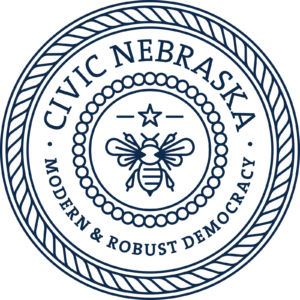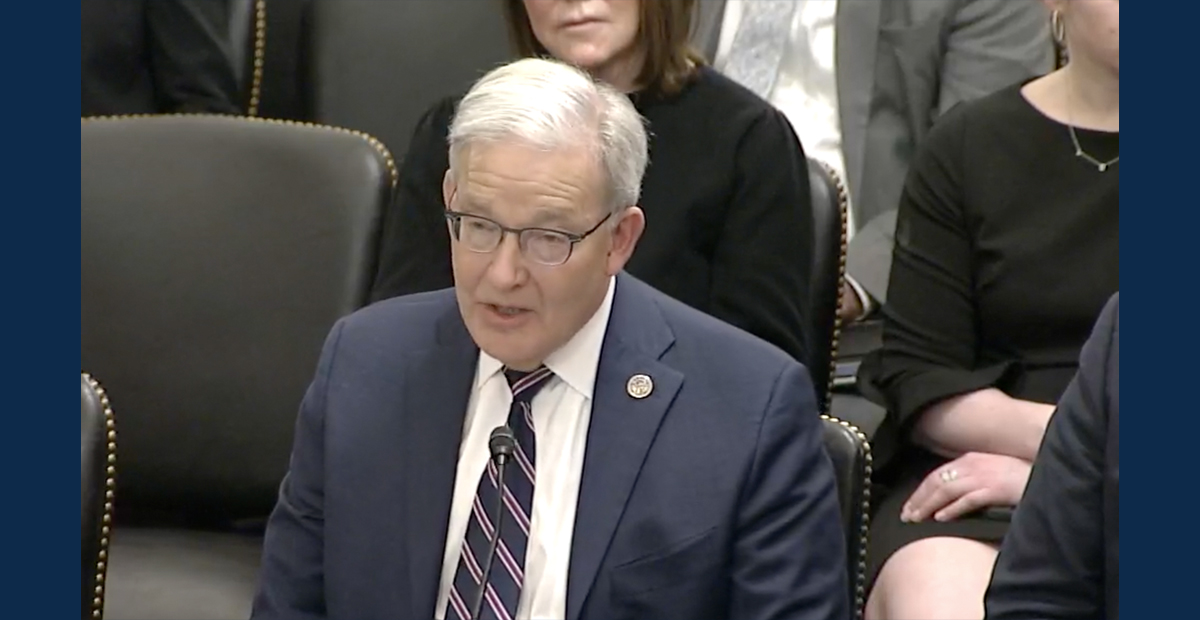On March 28, Nebraska Secretary of State Bob Evnen told a U.S. Senate committee that Nebraska’s elections are secure and accurate and can serve as an example for other states in confronting concerns regarding election integrity.

Evnen was among five elections officials from around the country to testify about election security and accuracy to the Senate Rules and Administration Committee. He was joined by New Mexico Secretary of State Maggie Toulouse Oliver; South Carolina State Election Commission Executive Director Howard Knapp; Durham County, North Carolina, Director of Elections Derek Bowens; and Lawyers’ Committee for Civil Rights Co-Director Marcia Johnson-Blanco. Sen. Deb Fischer (R-Nebraska) is the ranking member of the committee chaired by Sen. Amy Klobuchar (D-Minnesota).
The hearing offered Evnen and other election officials an opportunity to share their takeaways from 2022’s elections in their states with an eye on next year’s state and national contests.
“With the 2024 primaries less than a year away, this is an important discussion,” Klobuchar said. “Effective elections take resources and organization to counter a barrage of threats … by those attempting to undermine our democracy.”
Fischer said that even as new issues arise, including threats to and harassment of poll workers, states remain tasked to recruit, train, and retain citizens who will administer our elections. Yet, those election officials continue to carry out successful elections, in part because the nation’s differing state-run procedures keep election disruption to a minimum.

“While there are challenges to overcome, we should take the time to recognize and celebrate the many successes,” Fischer said.
Evnen, a Republican first elected as Nebraska secretary of state in 2018, told the committee about his office’s response to those who questioned the execution – and results – of the 2020 election. He also expressed full confidence in the accuracy of the state’s 2022 vote.
“Our election officials across the state did an exemplary job of conducting an accurate and secure election,” Evnen told the committee. “Our state, and indeed in my view our nation, owe a debt of gratitude to Nebraska’s county election officials for conducting an election that is a model for the nation.”
On the 2020 election
Evnen said that within two weeks after Election Day, the Secretary of State’s Office began tracking concerns that were being raised by Nebraskans. “As we began to see certain claims and concerns raised repeatedly, we created a presentation entitled Fake vs. Fact,” he said.”In our presentation, we set out frequently cited claims and concerns, then we set forth what we had found in response to them.”
When subsequently speaking to groups across the state, Evnen said he found overwhelming majorities were satisfied with the security of Nebraska’s elections, especially after receiving an explanation of various parts of our election processes.
On the 2022 election
Evnen said Nebraska’s 2022 elections were conducted “efficiently, accurately, securely, and in accordance with the law.” All ballot tabulation machines were tested three times for accuracy, with three separate tests of ballots through each machine. In addition, two mock elections were held, with one further checking the accuracy of Nebraska’s ballot tabulators, the computers that compile the results, and our election-night website.
After each election, he said, hand counts in two or three percent of precincts are conducted. After the November 2022 election, Nebraska expanded that audit to include 10 percent of precincts – at least one precinct in each of the state’s 93 counties, plus added precincts in more populous counties. In all, election boards in the counties hand-counted 48,292 ballots. Discrepancies were noted on 11 ballots, a discrepancy rate of 1/23,000ths of one percent. Of those, five were marked too lightly for the machine to read; the other six had been misfiled or misplaced.
A second post-election check found that 682,745 voters cast a ballot. The Secretary of State’s Office compared that with the 682,716 ballots that were tabulated, a variance of 29 ballots, which is a variance rate of 1/4,000ths of one percent.
On retaining poll workers and election officials
Evnen said that since 2020, growing interest in elections has created opportunities to engage Nebraskans at the county level. As they become more familiar with election systems, their confidence in the integrity of the process grows, he said: “I encourage those who have concerns to go be a poll worker.”
Nebraska’s recent recruitment and retention methods began in May 2020, during the height of the COVID-19 pandemic. When the state’s older, more vulnerable poll workers expressed concerns about exposure to the virus, the Secretary of State’s Office made a successful push to recruit a new generation of poll workers. That trend continued in 2022.
“We had very good elections in Nebraska (in 2022), and it’s the people in those 93 counties that made that happen,” he told the committee. “It’s very important we recognize their work, and that we express appreciation and gratitude for that work.”
On cybersecurity
There have been no cyberattacks on Nebraska’s elections, Evnen said. Nebraska was the first state to place an Albert Detection Monitor, which provides network security alerts for both traditional and advanced network threats, helping organizations identify malicious activity. Seven other states have replicated Nebraska’s system, he said, and Nebraska aggressively keeps up with the latest threats as well as best practices.
“We’re ready,” Evnen said in response to a question from Sen. Alex Padilla (D-California). “We don’t have concerns about being ready.”



